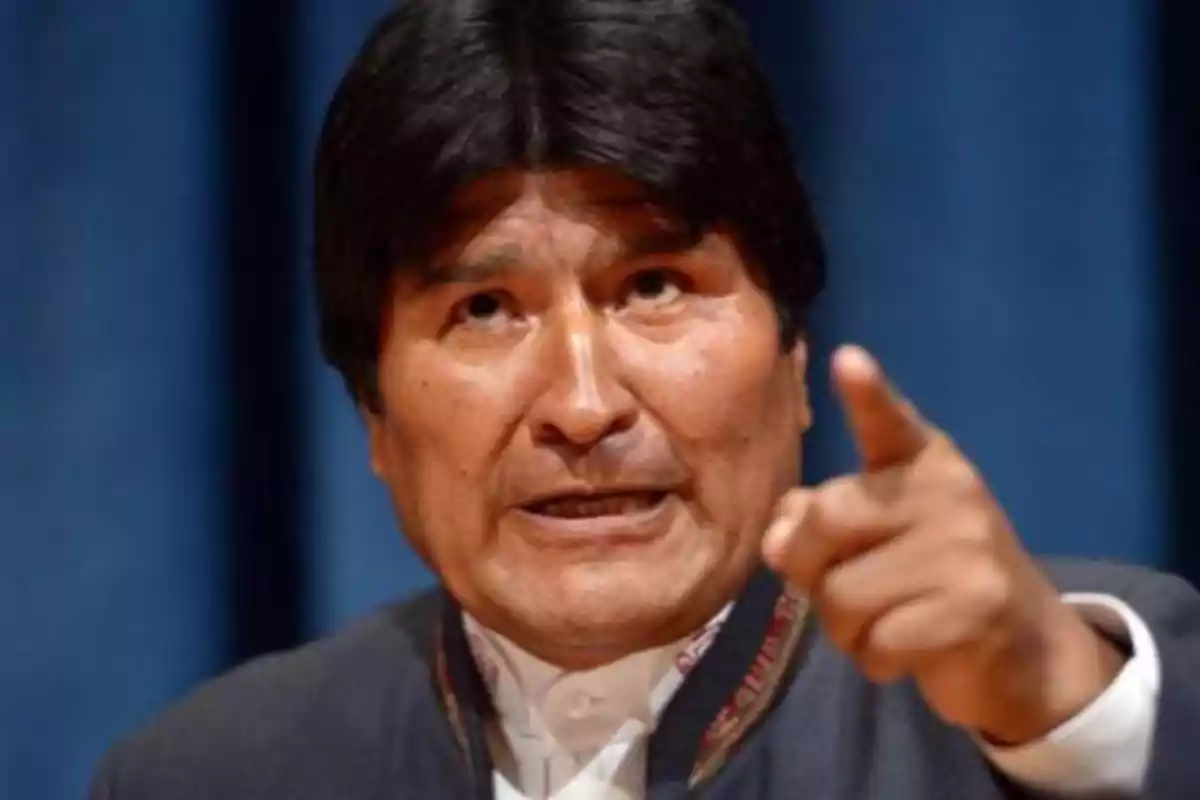
Evo Morales threatened a coup d'état if the right wins the election.
Morales's violent activists also threatened to sabotage the electoral process
The former far-left Bolivian dictator Evo Morales threatened the country's next government and targeted opposition candidates, stating that if any of them, identified with "the right," is elected in the August elections, it remains to be seen if "they can withstand" holding power.
"In vain some (candidates) from the United States are planning, (that) the right will win, will return. Let's see if that right wins, can withstand," Morales threatened during an event in the coca-growing region of Cochabamba, surrounded by violent activists.
The former communist president also stated that they are prepared to defend the country against what he considered attempts by certain candidates to "take over" the natural resources, and he emphasized that both the "indigenous movement" and the "popular movement" will remain firm in defending "their beloved Bolivia."
Roadblocks
Morales's statements come after a series of roadblocks and violent riots organized by his supporters, with the intention of threatening the judiciary to allow his candidacy in the general elections on August 17.
The violent actions lasted for more than two weeks and reached up to 24 simultaneous roadblocks, which interrupted traffic between the country's main cities and caused economic losses exceeding 1 billion dollars, according to official data.
According to reports from the Ministry of Government, clashes during the repression of the blockades resulted in at least six deaths among police officers and civilians.
The coca growers' leader and socialist president Luis Arce Catacora have been in conflict since 2021, stemming from internal disputes over control of Movimiento Al Socialismo (MAS), the dominant party in the last two decades, and over the selection of the candidate for the upcoming elections.
After a prolonged confrontation that included mobilizations and roadblocks by Morales's followers, the judiciary intervened to solve the political conflict and ruled in favor of Arce: his allies obtained legal control of the party and Morales was disqualified as a candidate.
In this scenario, without party support or legal authorization to seek a fourth term, protests organized by Evo intensified. His supporters tried to impose his candidacy through violence, blockades, and direct threats to members of the electoral tribunal.
With the slogan "No elections without Evo," the most radicalized activists warned that they could sabotage the electoral process if their leader doesn't participate as a candidate.
Bolivia's elections
The elections have been scheduled for August 17, and it is estimated that about 7.5 million Bolivian citizens will go to the polls to elect a president, vice president, 36 senators, and 130 deputies.
The Supreme Electoral Tribunal registered ten presidential tickets and, according to voting intention polls, opposition candidates Samuel Doria Medina and Jorge Quiroga, from the right, lead the preferences. Meanwhile, Andrónico Rodríguez, who replaces Evo Morales, ranks third according to the polls.
More posts: